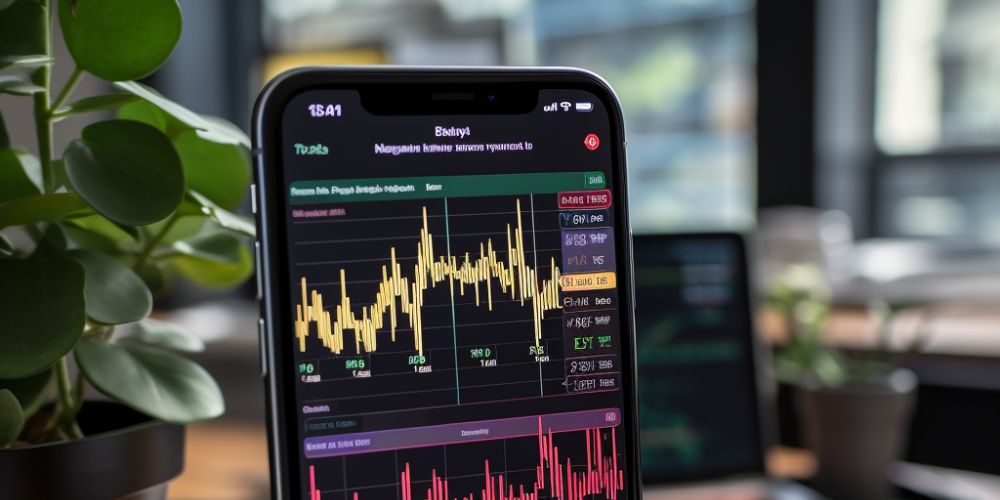In the world of investment, trading futures holds undeniable allure. The prospect of substantial profits attracts many aspiring traders.
Yet the question remains: Is trading futures profitable?
In this article, we will explore the factors that affect the profitability of trading futures, provide essential tips and strategies, examine case studies of successful futures traders, discuss common mistakes to avoid, and address frequently asked questions.
Is Trading Futures Profitable?
Trading futures can be a profitable endeavor, but it comes with its own set of risks and challenges. Whether or not trading futures is profitable depends on several factors, including individual trading skills, market conditions, risk management techniques, and overall market knowledge.
It is important to recognize that trading always involves a level of risk, and not all traders will achieve sustained profitability. Accessing educational resources, seeking mentorship, and gaining experience can improve the odds of success in this challenging but potentially rewarding area of financial markets.

Factors Affecting Profitability in Trading Futures
Importance of trading strategy:
- When developing a trading strategy for futures trading, it is important to consider parameters such as entry and exit criteria, stop loss levels, time frames, and indicators.
- It is also crucial to consider different types of strategies such as trend-following, contrarian, and breakout strategies, and choose the one that aligns best with your individual trading style and objectives.
- Backtesting and refining strategies on historical data can help traders adjust their strategies to changing market conditions and improve the chances of profitability.
Risk management techniques:
- Proper risk management is crucial in futures trading as it helps traders limit downside risks and maximize profits.
- Implementing risk management techniques such as setting stop-loss and take-profit levels, position sizing, and examination of risk-reward ratios can help traders manage risk effectively.
- Diversification and portfolio allocation can also play a significant role in reducing risk and improving profitability.
Market analysis and timing:
- Utilizing technical analysis tools such as chart patterns, support and resistance levels, moving averages, and indicators can help traders identify market trends and reversals.
- Fundamental analysis can provide insights into macroeconomic and geopolitical factors that may impact futures prices, helping traders make informed trading decisions.
- Timing trades based on market signals and indicators is crucial to maximizing profitability.
Capital requirement and leverage:
- Futures trading requires a substantial amount of capital, and the size of the trading account can significantly impact profitability.
- Leverage can amplify the potential profitability of futures trading but can also increase risks.
- Understanding margin requirements, margin calls, and leveraging risks is vital in successful futures trading.
Psychological factors:
- Emotional biases such as fear, greed, and overconfidence can negatively impact profitability in futures trading.
- Developing a disciplined mindset, sticking to a trading plan, and managing emotions can help traders avoid common psychological pitfalls in trading.
- Long-term perspective, patience, and resilience can also improve the chances of profitability in volatile markets.

Tips for Increasing Profitability in Trading Futures
Establishing a trade plan:
- Having a well-defined trade plan can help traders stay focused on their objectives and make informed trading decisions.
- It is essential to incorporate risk management techniques such as stop-loss levels and position sizing into the trade plan to help manage risks and maximize profits.
- Regularly reviewing and adjusting the trade plan based on changing market conditions can also be beneficial.
Protecting positions:
- Utilizing stop-loss orders to limit potential downside and trailing stops to lock-in profits can help manage risks and maximize profitability.
- Hedging strategies such as buying or selling related assets or using options can also help traders mitigate risk in uncertain market conditions.
Focusing on specific markets:
- Identifying markets in which you have expertise and experience can improve the chances of profitability.
- Understanding the unique characteristics and factors that impact each market can help traders make informed trading decisions.
- Developing in-depth knowledge of specific markets can also enhance the effectiveness of trading strategies.
Maintaining a disciplined trading approach:
- Sticking to predefined rules and avoiding impulsive decision-making can help traders stay focused on their objectives and mitigate risks.
- Avoiding overtrading and chasing quick profits can help traders avoid common pitfalls in futures trading.
- Practicing patience and letting profitable trades run their course can also improve the chances of long-term profitability.
Optimizing risk-reward ratio:
- Assessing potential reward relative to the risks taken in each trade can help traders identify high-probability setups with favorable risk-reward ratios.
- Managing winning trades and cutting losses quickly can help maintain a positive risk-reward ratio and improve profitability.
- Creating a disciplined risk management approach can also help improve the chances of long-term success.

Common Mistakes and Pitfalls
Overtrading and excess risk-taking:
- Overtrading and taking excessive risks can lead to significant losses and impede profitability.
- Traders should be aware of the dangers of excessive trading activity and be mindful of the risks involved in each trade.
- Balancing risk and reward can help traders maintain a sustainable approach to trading and improve profitability over the long term.
Lack of proper research and analysis:
- Proper research and analysis are essential to the success of futures trading.
- Common mistakes to avoid when conducting research include relying on outdated data and failing to consider market trends and fundamentals.
- Leveraging technology and resources can help traders enhance their research and analysis skills and improve their chances of success.
Ignoring risk management principles:
- Neglecting risk management techniques can significantly impact profitability in futures trading.
- Key risk management practices such as setting stop-loss and take-profit levels and diversifying the portfolio can help traders limit downside risks and maximize profits.
- Developing a disciplined risk management mindset can be beneficial for long-term success.
Emotional decision-making:
- Emotions can negatively impact trading decisions and can result in significant losses in futures trading.
- Strategies for managing emotions and avoiding impulsive actions include developing a trading plan, practicing patience, and keeping a long-term perspective.
- Emotional resilience is also essential in volatile markets to help traders maintain focus and discipline.
Conclusion
In conclusion, trading futures can indeed be profitable if approached with the right strategies, risk management techniques, and mindset.
By understanding the factors that influence profitability, implementing effective strategies, and learning from successful traders, individuals can navigate the complexities of futures trading and increase their chances of attaining sustainable profitability.
Remember, while profitability is attainable, it requires dedication, continuous learning, and disciplined decision-making.


 Tags:
Tags:










